UK press briefing beginspublished at 17:05 BST 9 June 2020
Business Secretary Alok Sharma is making the opening remarks at the daily UK government coronavirus briefing.
We'll bring you the latest here.
Transmission of virus by asymptomatic people is "an open question", the WHO says
Senior WHO official had earlier said it was "very rare" for asymptomatic people to pass the disease on
Brazil's government restores publication of death and infection figures after a Supreme Court order
The UK records 286 deaths in the past 24 hours, but officials note a downward trend
Non-essential shops will reopen in England from Monday 'if they follow safety rules'
There are more than 7 million infections globally, with over 400,000 deaths
Business Secretary Alok Sharma is making the opening remarks at the daily UK government coronavirus briefing.
We'll bring you the latest here.
Rachel Schraer
BBC Health Reporter
Dr Maria Van Kerkhove, who is leading the World Health Organization’s coronavirus programme, has clarified her comments about whether people without symptoms can spread the disease.
On Monday she said it was "very rare" for asymptomatic people to pass the disease on.
But today she said while there is evidence pointing in this direction, how much coronavirus transmission comes from people with no symptoms is still a "big unknown".
Looking at investigations of clusters of infections from various countries, she said that where an asymptomatic case has been followed up, it was “very rare” to find secondary infections among their contacts.
But she said it was still an “open question” as to whether the same was true globally.
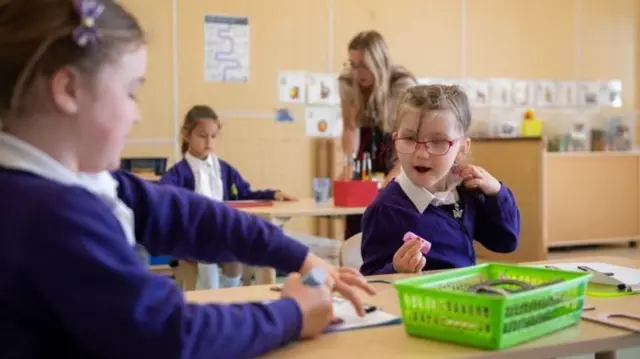 Image source, PA Media
Image source, PA MediaWe should be hearing from the UK government in the next few minutes.
But that gives you time to read about what some parents think of the news that many primary school pupils in England will not return until September.
We've also just had it confirmed that Sarah Albon, chief executive of the Health and Safety Executive, will be joining Business Secretary Alok Sharma at today's briefing.
Latest figures show the official death toll in the UK for people with coronavirus rose by 286 in the 24 hours to 17:00 BST on Monday.
There have now been a total of 40,883 fatalities.
As of 09:00 on Tuesday, there have been 5,870,506 tests, with 102,930 tests on Monday, according to the Department of Health and Social Care.
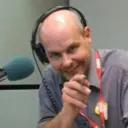 Theo Leggett
Theo Leggett
BBC International Business Correspondent
The International Air Transport Association (IATA) says it now expects global airline revenues this year to be $419bn (£329bn) lower than in 2019.
The projected fall is more than $100bn greater than previously forecast, and is expected to lead to a net loss for the industry of $84bn.
IATA says that, financially, 2019 will go down as the worst year in the history of aviation, thanks to the lockdowns and closures of international borders which forced airlines to ground entire fleets. At its lowest point in April, global air traffic was 95% down on last year’s levels. Although traffic is slowly recovering, IATA says airlines are burning through cash and state support remains crucial.
On Tuesday, Cathay Pacific secured a $5bn bailout largely funded by the Hong Kong government. Meanwhile France has unveiled a $17bn funding package to support its aerospace industry, which has been badly hit by a major fall in demand for new planes.
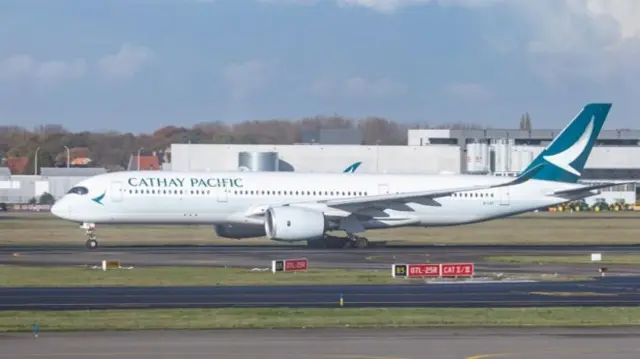 Image source, Getty Images
Image source, Getty Images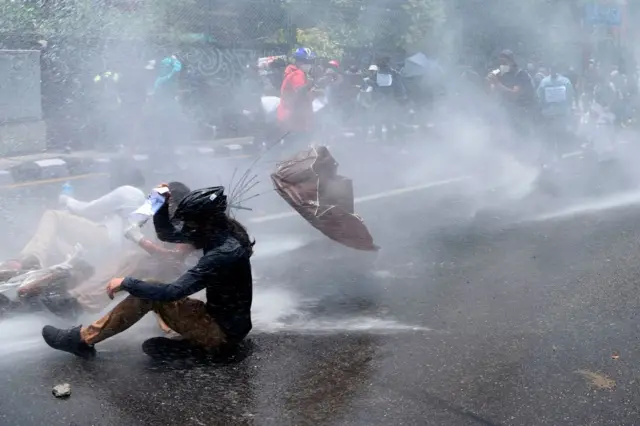 Image source, Getty Images
Image source, Getty ImagesPolice in the Nepalese capital Kathmandu have used water canon to disperse hundreds of people protesting against the government's handling of the coronavirus crisis.
The demonstrators were demanding better testing and quarantine facilities for returning migrant workers, along with greater transparency in government spending.
Ten protesters who gathered near the prime minister's residence were arrested, police said.
Tens of thousands of migrant workers have returned to Nepal from India and the Middle East after losing their jobs.
A nationwide lockdown imposed in late March is due to end next week. About 4,000 people have tested positive so far, and 14 deaths have been recorded.
Clubs have voted to end the League One and League Two football seasons early in England.
Tables will be settled by a points-per-game format, while promotion, relegation and play-offs all remain.
Coventry and Rotherham go up to the Championship, but "ongoing disciplinary matters" mean it is not yet certain who will drop out of League Two.
Stevenage are currently bottom of the league, but they could yet be reprieved after Macclesfield Town were handed a fresh misconduct charge on 1 June.
 Image source, Getty Images
Image source, Getty ImagesSwindon Town will be promoted as League Two champions
We have just had it confirmed that the UK government will give its daily briefing at 17:00 BST (16:00 GMT).
The briefing will be led by Business Secretary Alok Sharma.
 Reality Check
Reality Check
The US and other countries have raised questions about whether China was fully transparent when the virus first emerged there.
It comes as Harvard researchers say satellite images show an increase in traffic outside five hospitals in the Chinese city from late August to December.
The traffic spike coincided with a rise in online searches for information on symptoms like "cough" and "diarrhoea".
China has called the study "ridiculous" and based on "superficial" information.
So what do we know about what happened in China, and what did it say and do about the outbreak?
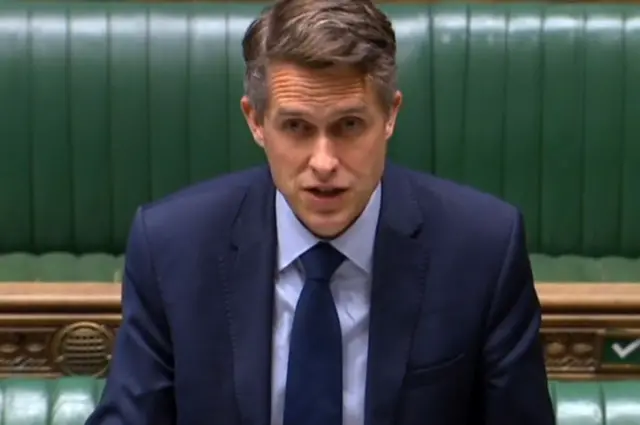 Image source, AFP
Image source, AFPGavin Williamson defended the government's help for pupils
Returning to Education Secretary Gavin Williamson's confirmation in Parliament that plans for all England's primary children to return for a month before the summer break have been dropped...
The chairman of the education select committee, Tory MP Robert Halfon, urged ministers to help disadvantaged children avoid an "epidemic of educational poverty" while out of school.
And Labour MP Meg Hillier accused the education secretary of having "no clear plan" to distribute laptops to vulnerable pupils.
Mr Williamson defended the government's response, saying 230,000 computers were available to students and the work to distribute them is "on target".
Labour's Ian Mearns raised concerns over the eventual reopening of all schools, pointing out the incidence of Covid-19 was currently five times greater in the North East than in parts of the South West.
Mr Williamson said it was "vitally important" that all schools open but "there may be clusters of schools that we do have to face closing for short periods of time".
You can read more about the background to the reopening of schools here
Paris prosecutor Rémy Heitz has opened an inquiry into the French state's management of the coronavirus crisis.
The investigation will be a judicial response to complaints received by the Paris public prosecutor's office during the lockdown, Mr Heitz told the agency.
Mr Heitz said the aim of the inquiry was not to "assign political or administrative blame... but to uncover possible criminal offences" by national decision-makers. Potential charges include endangering the life of others, homicide and involuntary injury and failure to assist a person in danger.
President Emmanuel Macron, as head of state, is not a target of the inquiries and has immunity from prosecution.
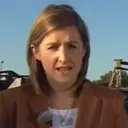 Jessica Parker
Jessica Parker
BBC political correspondent
The warnings came early that plans to reopen primary schools to all children may not be possible. But if there were suggestions that ministers had been overambitious, there are now also suggestions that they haven’t been ambitious enough.
How is it, some are asking, that non-essential retail is set to get the green light to reopen this month while the majority of children continue to be off school?
Downing Street would undoubtedly resist claims that it’s prioritised the economy over education.
And their watchwords, when it comes to schools, have been about taking a “phased” and “cautious” approach.
But there are fears that with every day that goes by, some young people are falling further and further behind, particularly those from disadvantaged backgrounds.
And while the education secretary expressed an ambition to get all children back in September, it appears to be just that - an ambition.
There’s a question: if bringing primary schools back now isn’t practical, with all the social distancing that’s required, what will have changed in three months’ time to allow all young people to return?
It’s a deeply worrying situation for families, and a dilemma for a government that’s put spreading opportunity, or “levelling up”, at the heart of its agenda.
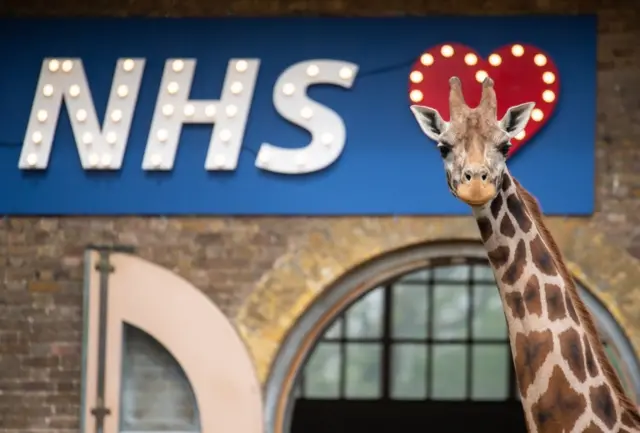 Image source, PA Media
Image source, PA MediaLondon Zoo has been closed since 21 March
London and Whipsnade Zoos say they face permanent closure if the government does not reverse its decision to keep zoos shut as lockdown restrictions are eased.
The charity the Zoological Society of London, which runs both attractions, said the sites are reliant on income from visitors to care for their animals and fund global science and conservation projects.
ZSL said it did not qualify for government help and has been spending £1m a month on expenses.
ZSL head Dominic Jermey said: "Unlike shops, museums and pubs, we couldn't just shut the gates, press pause, and wait for the green light to return.
"Our zookeepers, veterinary teams and facilities teams have continued to come to work every day to ensure our precious animals remain healthy and cared for."
ZSL says measures have been put in place so visitors can return to the zoos safely.
The issue is to be discussed in a parliamentary debate on Thursday.
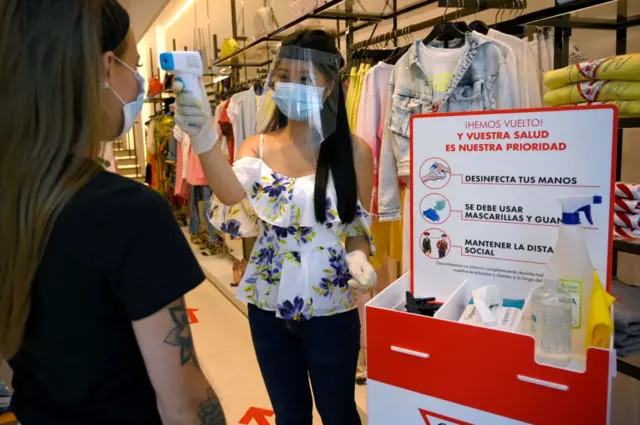 Image source, Getty Images
Image source, Getty ImagesWearing face masks will be compulsory in Spain until the coronavirus epidemic is over, Health Minister Salvador Illa says.
The measure will "remain in place until we permanently defeat the virus, which is when we have an effective treatment or vaccine against it", he added.
Since 21 May, it has been compulsory for everyone aged six and over to wear a mask in public where it is not possible to maintain a 2m (6ft) security distance from other people.
When the state of emergency formally ends on 21 June, the measure will remain in place, with the government introducing a fine of up to €100 (£89) for non-compliance. The new regulation will, however, slightly reduce the security distance to 1.5m.
The virus has killed more than 27,000 people in Spain but with the epidemic under control, the country has been easing out of lockdown.
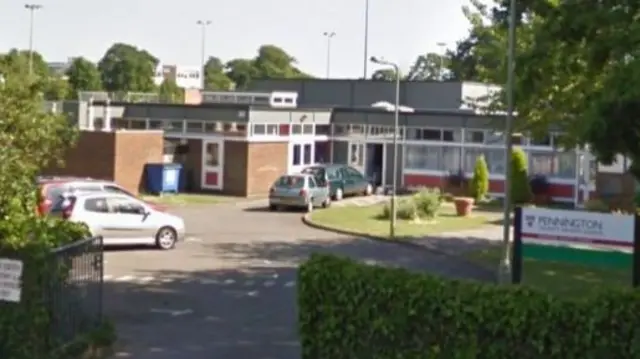 Image source, Google
Image source, GoogleA school in The New Forest, in southern England, has been closed after a pupil tested positive for Covid-19.
Pennington Infant School said staff were made aware that a child had the virus over the weekend.
Deputy headteacher Amy Wake said the "difficult decision" to close was based on "precautionary advice".
The affected pupil is in isolation with their immediate family. Others within the child's "bubble" have been told to self-isolate.
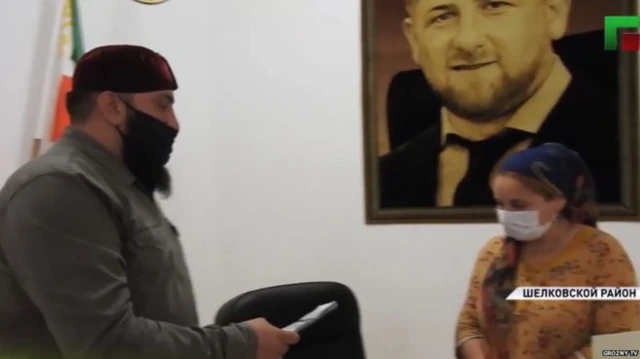 Image source, Grozny TV
Image source, Grozny TVThe strongman ruler of a Russian region is offering to help men struggling to make traditional pre-nuptial payments because of the Covid-19 pandemic.
Bridegrooms in the predominantly Muslim republic of Chechnya are required to make a payment either to the bride herself or her relatives, according to long-standing custom.
But because of the impact of the coronavirus epidemic, many Chechen men cannot afford to make the payment known as "urdu", local media report.
As a result, Chechen leader Ramzan Kadyrov "has made bride money available to 207 grooms, external who have been left in need by the quarantine", Russia's official news agency RIA Novosti reports.
Each groom will get a payment of 50,000 roubles (£570), it says.
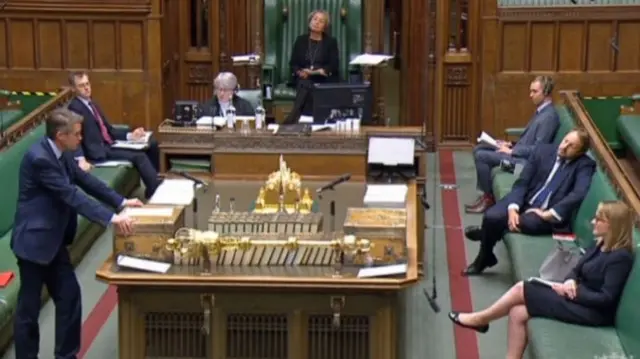 Image source, AFP
Image source, AFPThe education secretary made his announcement in the Commons before Ms Long Bailey (right) responded
Responding to Gavin Williamson's announcement on schools in England, the shadow education secretary welcomed the decision "to roll back" the plans to reopen - but expressed "dismay" at the way the situation was handled.
Rebecca Long-Bailey told the Commons: "For weeks, headteachers, education unions, school staff and many parents have warned that the plans to open whole primary schools before the summer were simply impractical while implementing social distancing safely."
She added it is now "imperative the government looks ahead to what the education system needs over the coming months and years".
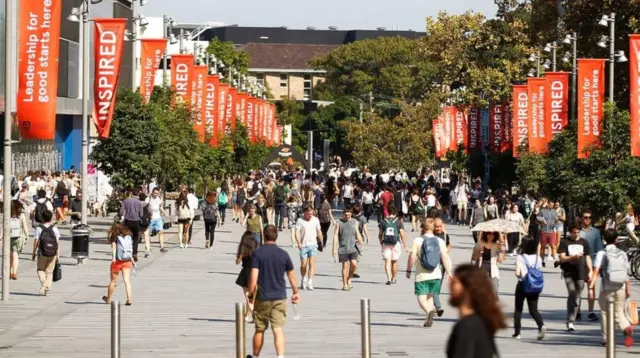 Image source, Getty Images
Image source, Getty ImagesAustralian universities are popular with Chinese students
China has warned students to "exercise caution" before deciding to study in Australia over fears of racist attacks.
A statement from China’s ministry of education said: “During the pandemic, Australia has seen multiple incidents of discrimination targeting those of Asian descent. The spread of the global Covid-19 outbreak hasn't been effectively controlled, and there are risks in travel and open campuses."
Australia had led calls for an independent inquiry into the origins of the pandemic, which was first detected in China before spreading to other countries.
Australian Education Minister Dan Tehan denied that his country was unsafe for students, saying: "Australia is a popular destination for international students because we're a successful, multicultural society and provide a world-class education.
"Our success at flattening the [coronavirus] curve means we're one of the safest countries in the world for international students."
In 2019, there were more than two million Chinese students, external studying in Australia.
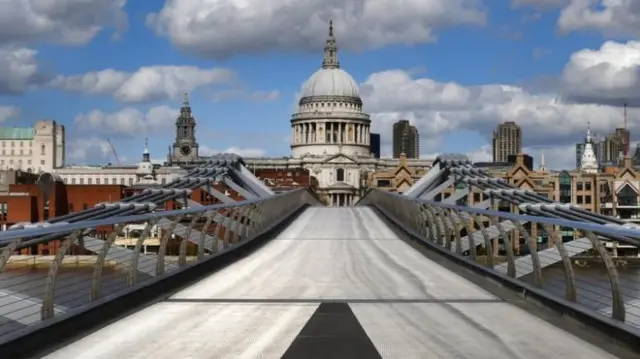 Image source, Getty Images
Image source, Getty ImagesLockdowns have saved more than three million lives from coronavirus in Europe, a study estimates.
The team at Imperial College London said the "death toll would have been huge" without the restrictions.
But they warned that only a small proportion of people have been infected with Covid-19, and we are still only "at the beginning of the pandemic".
Education Secretary Gavin Williamson has confirmed in the House of Commons that the UK government is not going ahead with its plan to see all English primary school pupils return to classes for four weeks before the current term ends in July.
While children in Nursery, Reception and Years 1 and 2 were able to go back - in smaller classes - last week, head teachers have warned over the feasibility of having more pupils in school while maintaining social distancing.
More than half of primary schools in England admitted pupils from those year groups last week, Williamson tells MPs.
Some schools in areas including the North West are worried about the rate of transmission, he says, adding that scientists say the R rate is below one.
From 15 June, secondary school pupils in Years 10 and 12 will get some face-to-face support, Williamson says.
He says the Department for Education has published advice on hand-washing and social distancing, and safety remains his top priority.
There will also be a test and trace approach to schools, where pupils show symptoms of coronavirus.
Williamson says the government continues to work on the next steps so that those schools that can accept more children in reduced class sizes will be able to.
And the education secretary confirms that exams will take place next year.
There are separate rules for managing the threat of coronavirus in England, Wales, Scotland and Northern Ireland.